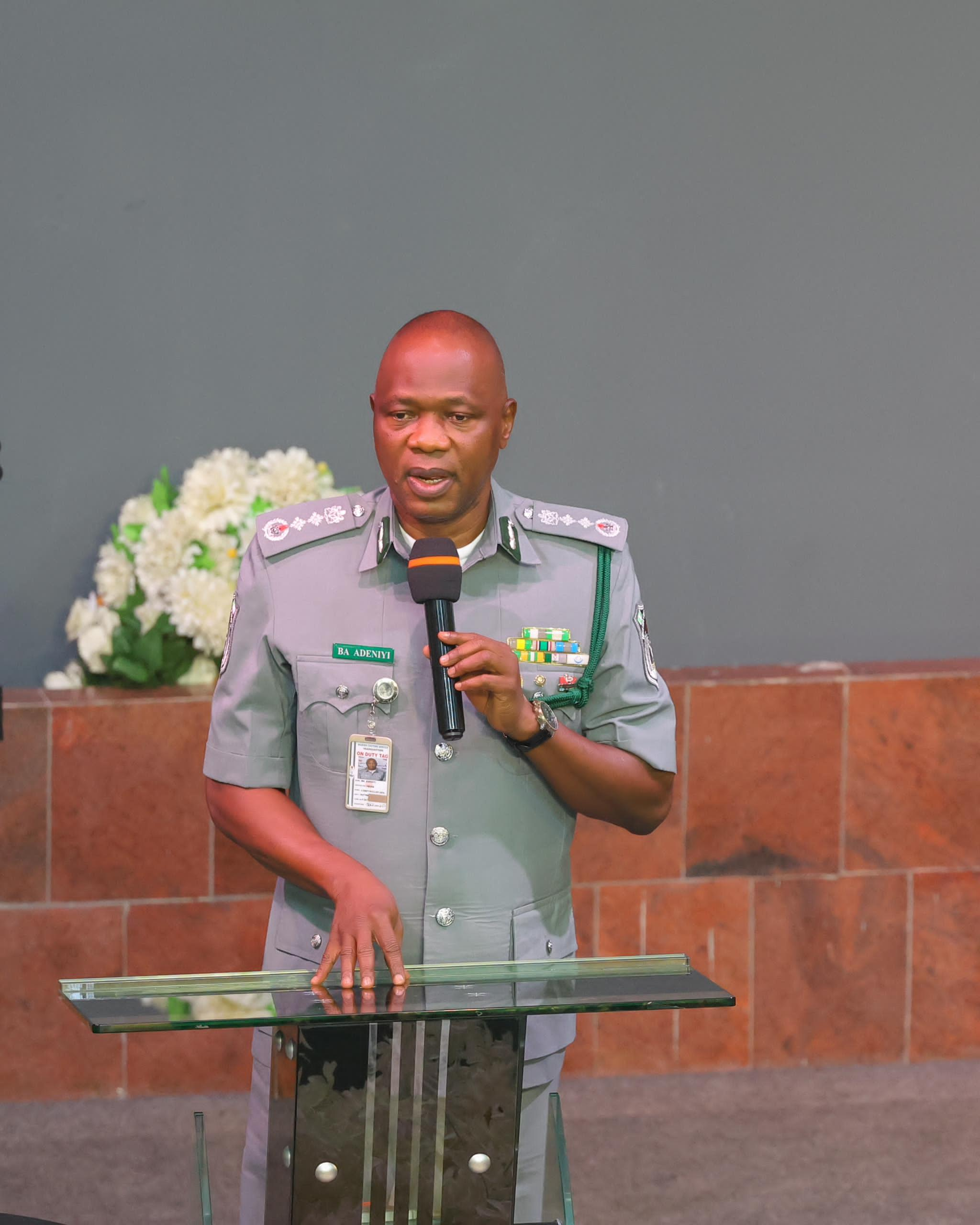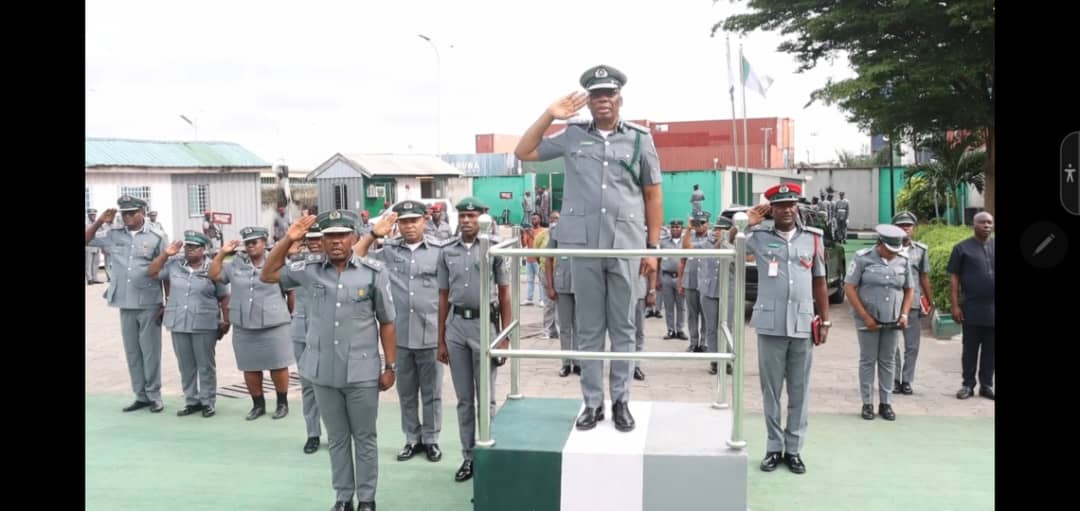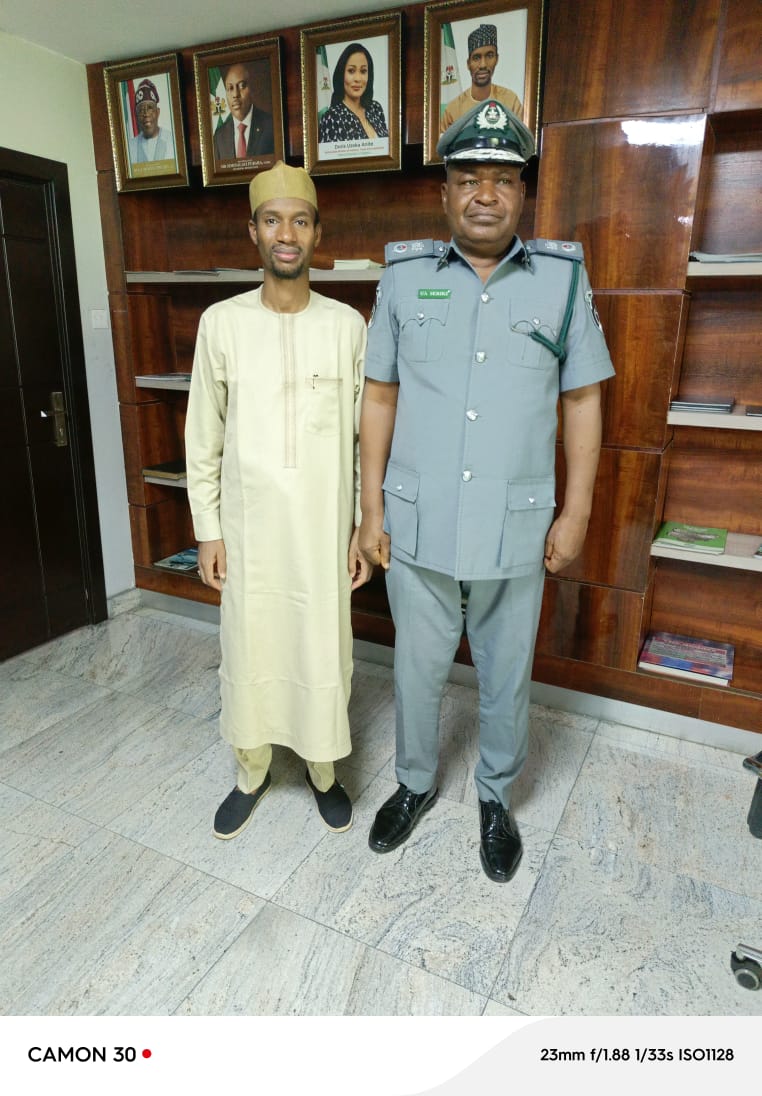Customs Corner
Nigeria advised to do more to crack down as pangolin trade increases

Nigerian advised to do more to crackdown
as pangolin trade increases
- Training of Nigerian officials and exchanges with their customs counterparts in destination countries including China and Vietnam are expected to improve intelligence sharing and curb trafficking.
- Enforcement and prosecution of laws against wildlife trafficking remains weak, say experts, who emphasize the need to treat the matter as a transnational crime rather than as a conservation issue.
- Authorities seized 113 tonnes of pangolin scales originating in Nigeria between 2016 and 2019, more than half of global seizures.
Law enforcement officials around the world have seized more than 200 tonnes of pangolin scales since 2016, more than half of it linked to Nigeria, a new report has found.
The report, published February by the Wildlife Justice Commission (WJC), identified 52 major seizures of pangolin products between 2016 and 2019. More than 130 tonnes were intercepted in 2018 and 2019 alone, indicating an unprecedented increase in trafficking, often engineered by organized criminal networks. In all likelihood, “significant quantities” of pangolin scales continue to be smuggled undetected across borders and oceans.
WJC, which works to tackle organized crime in wildlife trafficking, focused on seizures of 500 kilograms (1,100 pounds) or more, collecting and analyzing media reports, as well as conducting its own investigations to fully assess the extent of the illegal trade in pangolin scales.
The report identifies 27 countries and territories “disproportionately involved” in the trafficking of pangolin scales: just six — Nigeria, Vietnam, China, Singapore, Hong Kong, and the Democratic Republic of Congo (DRC) — accounted for 94% of all intercepted scales.
The analysis points out that the most persistent smuggling routes connect Nigeria to Vietnam and Hong Kong, with Singapore emerging as a transit hub between these countries.
The total weight linked to Nigeria irrespective of role continued to increase throughout the period studied, rising from 10.4 tonnes in 2016 to 13.2 tonnes in 2017, 36.5 tonnes in 2018, and 52.9 tonnes last year. (The United Nations Office on Drugs and Crime last year pointed out that with pangolins in Nigeria seemingly already hunted to the verge of extinction, scales smuggled out of the country to Asia may originate from poaching in neighboring countries.
Pangolin traffickers. Image by USAID via Flickr (CC BY-NC 2.0)
Strengthening enforcement
Nigeria’s Endangered Species (Control of International Trade and Traffic) Act outlaws trade in pangolins. It was amended in 2016 to allow a maximum fine of 5 million naira ($13,000) or one year in prison for offenders.
But with seizures in 2019 easily outstripping 2018’s total, these penalties appear to be insufficient deterrent for either the wealthy syndicates involving Asian merchants and their Nigerian counterparts that drive the trade, or the hunters and bushmeat vendors who supply it, poaching pangolins from as far away as the Democratic Republic of Congo.
Abimbola Animashawun, an intelligence officer with the Nigeria Customs Service (NCS), says it is “worrying … that Nigerian law and penalty for such offenses is still too weak and this is not helping matters at all.”
Very few people have been convicted for wildlife trafficking offenses, despite occasional in-country seizures of large shipments of scales. Thirty-one seizures of illegal wildlife between March 2010 and August 2018 are recorded in a September 2018 submission to CITES, the global wildlife trade authority, from Nigeria’s environment ministry. But only eight of these cases were prosecuted, with three convictions: in each case, the court handed offenders a six-month jail sentence with the option to pay a fine of 100,000 naira ($260).
Enforcement at both ends of the supply chain is also hindered by corruption, according to Sarah Stoner, WJC’s director of intelligence.
Also Read:
“As in any major transnational organised crime, corruption is an enabler of wildlife trafficking, and from previous investigations the WJC has identified that wildlife trafficking is often synonymous with the presence of ‘compliant’ enforcement officials who facilitate the smuggling,” Stoner told Mongabay in an email.
“There is no doubt that transnational trafficking at this scale could not happen without corruption and it continues to be the greatest challenge in addressing wildlife trafficking.”
A raft of new initiatives, including workshops for Nigeria’s enforcement officers and international exchange meetings, has been implemented by conservation groups since 2017 to improve capacity for detection, interception and intelligence sharing.
For instance, the Wildlife Conservation Society (WCS) has organized workshops for Nigerian customs officials to help them search and thoroughly inspect consignments to improve detection rates for illegal wildlife products such as pangolin scales and ivory, thanks to funding from the U.K. Illegal Wildlife Trade Challenge Fund. Customs officials currently prioritize efforts to intercept contraband like rice, imports of which via land border posts have been banned since 2016.
WCS says it hopes the officers who received training will be better able to prevent trafficking of pangolin scales. Additional workshops are planned for Lagos and Port Harcourt this year, said WCS Nigeria director Andrew Dunn.
In September 2019, WCS also facilitated a visit to Nigeria by top Chinese customs officials to share intelligence about Chinese nationals and others identified as part of organized networks involved in the seized pangolin scales originating from Nigeria.
This meeting, Dunn said, will help both countries better coordinate efforts to tackle trafficking of pangolins and other wildlife. There are plans for a similar visit by Vietnamese customs officials in the first half of 2020.
With additional support from the U.S. State Department’s Bureau of International Narcotics and Law Enforcement Affairs, WCS is also working with Nigeria’s National Environmental Standards and Regulations Agency (NESREA) and the NCS to ensure that all seized wildlife products, such as pangolin scales and ivory, are properly catalogued in an online database and stored in secure locations around the country.
One of the WCS staff works directly with the NESREA in the Nigerian capital, Abuja, to keep reliable inventory of all seizures, improve security of the stockpile to ensure that intercepted contraband does not slip back into the market, and make the data readily available for policymakers to improve planning.
White-bellied pangolin. Image by Darren Pietersen/African Pangolin Working Group
Stoner urges stronger international cooperation and demands that trafficking of pangolin scales must be addressed as a transnational crime rather than as a conservation issue. “As in other forms of serious and organized crimes, the application of advanced investigative techniques and intelligence analysis is largely not being applied to wildlife trafficking,” she said.
Stoner points to a recent large-scale seizure of pangolin scales smuggled via Cameroon and the consequent arrest of 20 suspects as a “good example of how high-level and closely coordinated interventions to effectively disrupt the criminal networks driving the global trafficking of scales are crucial.”
Stephen Aina, the Nigerian Conservation Foundation’s coordinator for species recovery and conservation programs, says he wants custom officials to explore the use of whistle-blowers for interceptions and arrests. But he says he also believes a more coordinated approach is required to address the trafficking of pangolin.
“Efforts within the country are at best disjointed and largely uncoordinated,” Aina said.
“There is the need for stakeholders to develop a pangolin conservation blueprint and action plan that will be binding on all actors … a nationally coordinated recommendation is key.”
ADVERTISEMENT

ADVERTISEMENT
Customs Corner
Customs, National Hospital Holds Service of Songs for Late DC Essien

… To be Awarded with Post-Mortem Promotion to Comptroller of Customs
By Abra Iruoghene
The Nigeria Customs Service and the National Hospital held a Service of Songs for the Late Deputy Comptroller of Customs in charge of Revenue Etop Andrew Essien, who passed on on June 25 2024, at the National Assembly while making a presentation before the House Committee on Public Accounts.
The Comptroller-General of Customs, Adewale Adeniyi, while speaking at the event on 23 July 2024, noted he was out of the country when he heard the sad news of Essien’s demise. He said he was greatly bereaved to lose such a professional who was an epitome of excellence.
Describing DC Essien, Adeniyi said he was someone who took on every assignment and gave the best he had. “He was always prepared with facts and figures to defend the NCS”, he added.
Adeniyi said, “If money could bring him back, the Nigeria Customs Service would have done all they could to bring him back to life. The NCS will live up to those values he died for, which are Professionalism and Sincerity. ”
Still speaking, he said, “The NCS will give the late DC a burial of heroes. A meeting has been held on his behalf, and a proposal will be submitted to the Customs Board for a post-mortem promotion to the rank of Comptroller of Customs. Also, the children are now my friends. They are the children of heroes and will be treated as such. ”
He further encouraged officers to serve wholeheartedly with discipline and professionalism. Stating those who sacrifice their lives in the Nigeria Customs Service will not sacrifice in vain but will be remembered forever.
Customs Corner
ACG Yusuf Emphasises Thorough Inspection to Prevent Entry of Illicit Items

… Urges TCIP Officers to Adhere Strictly to Established Procedures
By Ibe Wada
The Zonal Coordinator of Zone A, Assistant Comptroller General of Customs (ACG) Saidu Yusuf, has emphasised the critical importance of intensifying cargo examination at Tincan Island Port to enhance national safety.
During his working visit to the command on Wednesday, 24 July 2024, Yusuf highlighted the necessity of rigorous checks to prevent the entry of expired products and illicit drugs into the country.
“We need to intensify our examination of cargo, as this is a main exercise for the Nigeria Customs Service. There is a need for thorough inspections at every stage, using the various parameters and tools provided by the service,” Yusuf stated.
“We also face issues with illicit and expired products. Beyond revenue collection, our role is to protect the lives and safety of the nation. Failure to do so could result in us becoming victims, directly or indirectly’’. He emphasised.
The ACG stressed that customs officers must adhere strictly to established procedures to ensure accountability and efficiency. “We must be diligent in all that we do to justify the actions required of us. I urge everyone not to relent in following the laid-down procedures. The Tincan Island command, under the leadership of Comptroller Dera Nnadi, has demonstrated efficiency, particularly in intercepting and seizing illicit drugs, arms, and ammunition”.
Yusuf also praised the implementation of new trade facilitation tools, including the Time Release Study and the Advance Ruling System, which have been introduced to enhance operational efficiency.
Acknowledging the ongoing efforts of the Customs Area Controller (CAC), he commended the team for their hard work under his leadership. He called for increased vigilance, especially in light of recent security challenges and rising smuggling activities.
In his address, Comptroller Dera Nnadi explained that the command is committed to its statutory obligations, which include revenue generation, trade facilitation, and securing the nations border.
“We have been creating an enabling environment for stakeholders engaged in legitimate trade, and we declared this year as the year of stakeholders in the command”, he said.
Nnadi reported that as of 24 July 2024, the command had collected six hundred and sixty-nine billion, five hundred and sixty-one million, nine hundred and forty-seven thousand naira (N669,562,947,000) and affirmed that the command remains focused on its revenue target for the year.
He also highlighted challenges, particularly regarding office infrastructure, and stressed the need for renovation.
The CAC appreciated the Zonal Coordinator for taking the time to visit the command and offer valuable advice to the officers.
Customs Corner
Comptroller Seriki Strengthens Alliance with Oil & Gas Free Zone Authority

…Reassures of Command’s Operational Efficiency
By Vivian Daniel
The Customs Area Controller (CAC) of the PH Oil and Gas Free Trade Zone (FTZ) Command, Onne, Rivers State, Comptroller Usman Seriki, on Monday, 22 July 2024, paid a courtesy call to the Managing Director (MD) and Chief Executive Officer (CEO) of the Oil and Gas FTZ Authority, Bamanga Jada, in his office at Mable House, Onne, Rivers State, to consolidate relations with the officials.
This was contained in a press statement signed on Tuesday, 23 July 2024, by the Command Public Relations Officer, Assistant Superintendent of Customs II, Paul Gimba, on behalf of the Customs Area Controller.
According to the statement, this aligns with the policy thrust of the Comptroller-General of Customs, Adewale Adeniyi, to collaborate with stakeholders for efficiency in revenue drive, suppression of smuggling, and facilitation of legitimate trade.
The CAC assured the MD of upholding and improving the established relationship between both organisations regarding trade facilitation and supervising compliance in the Free Zone.
“This relationship is significant because it will enhance operational efficiency, trade facilitation, and regulatory compliance in the Oil and Gas Free Zone,” he re-emphasized.
The MD appreciated the CAC and the Service for contributing to the many success stories of the Free Trade Zone. He added that “this cooperation can further contribute to overall economic growth by boosting trade volume, creating a more efficient and attractive business environment in Nigeria’s Oil and Gas Zone.”
The General Manager of Operations, Oil and Gas Free Zone Authority, Adekunle Ajayi, recognised that the harmony between the two agencies has diminished bureaucratic bottlenecks and ensured seamless processes in the environment.
-

 Revenue Streams3 years ago
Revenue Streams3 years agoCommunication Ministry Gives Zero Allocation to Nipost Out of N137.2billion Capital Votes
-

 Customs Corner2 years ago
Customs Corner2 years agoCustoms Emerges Champions of 2022, Male, Female National Volleyball Super Cup
-

 ICT5 years ago
ICT5 years agoFinally! Huawei Launched Harmony OS | Let the Rivalry Begins with AndrodOS
-

 Newsroom4 years ago
Newsroom4 years agoNNPC Blames #EndSARS Protests, As Fuel Queues Return
-

 COVID-194 years ago
COVID-194 years agoVaccine Trials Starts Round The World: All You Need to Know
-

 Naija News6 years ago
Naija News6 years agoINEC registers 23 new political parties. YES, RAP, UP, 20 other parties
-

 Foreign2 years ago
Foreign2 years agoPhilippines’ Duterte Blocks Bill to Register Social Media Users
-

 Customs Corner4 years ago
Customs Corner4 years agoArea Controller, Murtala Muhammed International Airport Command Passes On







